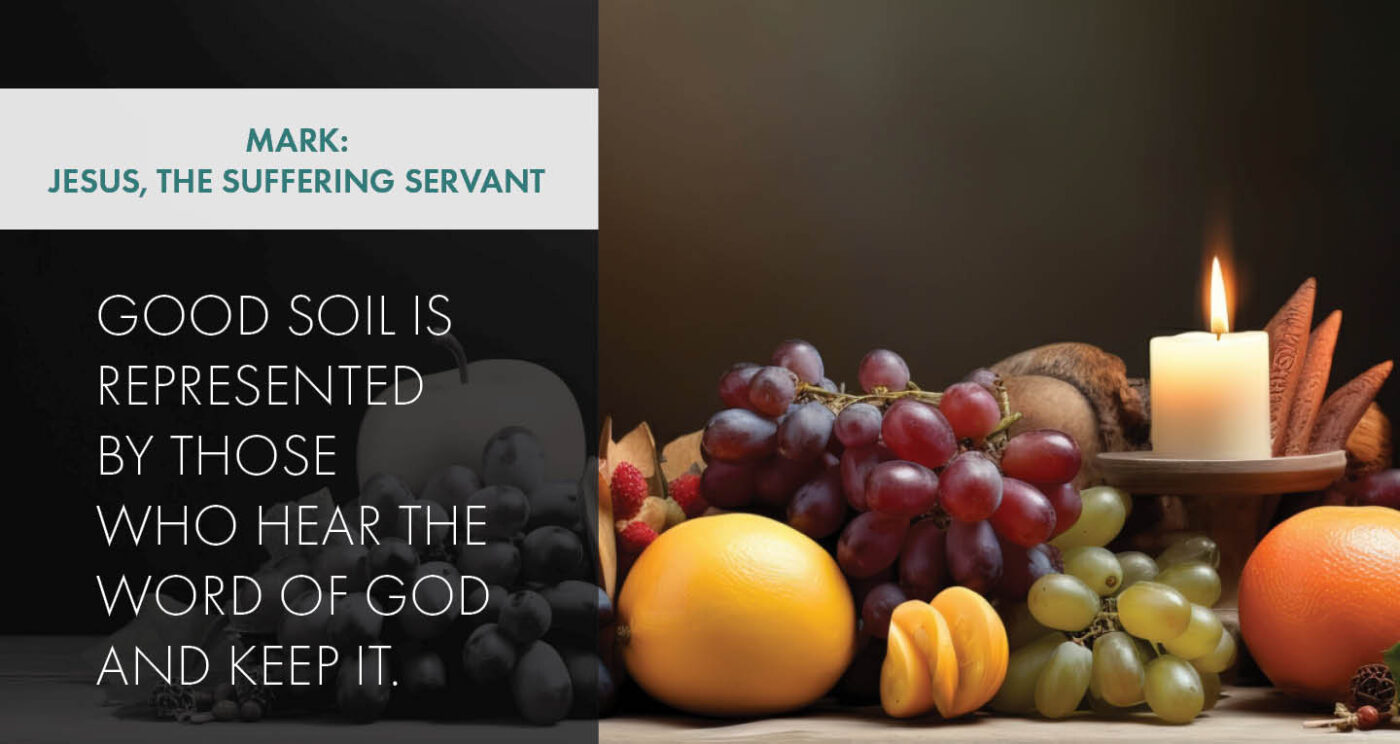
A Fruitful Life : Part 2
This text reveals several key INGREDIENTS necessary for producing “A Fruitful Life.”
In the previous episode of The Voice of Hope we began studying Mark 4:1-20, Jesus’ parable of the soils. We looked at the skill of the sower, the quality of the seed, and the first two kinds of soil. They were the hard-packed soil of the footpath and the thin soil with underlying bedrock. Today, we’ll look at two more types of soil and also the yields of good productive soil.
Listen now as I read a shortened version of our text, Mark 4:10-20.
And then Jesus moves on to the third soil type; the thorny soil. Once again, the question arises; “Why sow precious seed among thorns?” I think Luke’s record of this provides the answer. He wrote, “Some [seed] fell among thorns, and the thorns SPRANG UP WITH IT and choked it.”
Many varieties of thorny vines are rhizomes; that is, their root systems spread beneath the soil. In the winter, the old growth dies and deteriorates. In the spring, new growth will emerge from those root systems under the ground.
So, it is possible that depending on how the soil was prepared to receive the seed, the sower would not see any evidence of the thorns. That area of the soil may look just as good as all the other areas. It is only after the seed is sown and both the grain and the thorns begin to grow together that the problem is discovered.
In verses 18 and 19 of our text, Jesus explains the characteristics of the thorny soil. As the young stalks of grain and the young thorns grow together, literally becoming intertwined, the thorns overtake the grain and choke out its life. And the Greek word means to choke something until it is dead! Death precludes any possibility of bringing fruit to maturity.
Let me pause here to note something I think is important. Except for the very first soil, the hard-packed path, each of the other soils probably appeared on the surface to be suitable for sowing the seed. But it was what lay beneath the surface that was important in determining whether or not a crop was produced.
Now, let’s look at Jesus’ description of the thorny soil. Jesus said the thorny soil represents those who, as they are going forth, are “strangled” with the cares and riches and pleasures of this life. As a result, they bring no fruit to perfection or maturity. Let’s take some time to examine the things Jesus specifically mentioned that strangle these fruitless plants.
First, Jesus mentions cares. What are the cares that prevent fruit? Matthew and Mark refer to “cares of the world.” In Philippians 4:6 Paul writes “Be care-full [or anxious] for nothing…” In Second Corinthians 11:28, he writes about all the care or anxiety he experienced as the leader of the churches. And in I Peter 5:7, we read, “Cast all your cares [anxieties] on Him, because He cares for you.”
Jesus is talking about a preoccupation with the affairs of this life. It is investing my time and energy in...